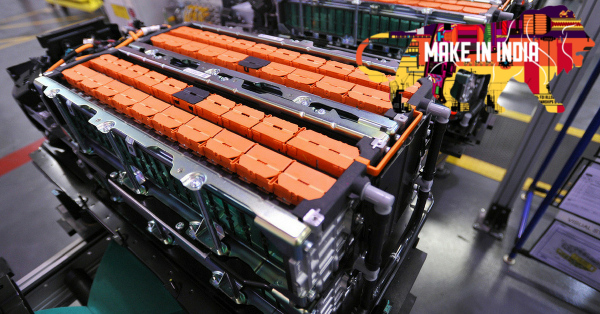India plans to offer $4.6 billion in incentives to companies setting up battery manufacturing facilities as it seeks to promote the use of electric vehicles and cut down its dependence on oil, Reuters reported.
A proposal drafted by NITI Aayog, a federal think tank chaired by Prime Minister Narendra Modi, said India could slash its oil import bills by as much as $40 billion by 2030 if electric vehicles were widely adopted.
The think tank recommended incentives of $4.6 billion by 2030 for companies manufacturing advanced batteries, starting with cash and infrastructure incentives of 9 billion rupees ($122 million) in the next financial year which would then be ratcheted up annually.
India plans to retain its import tax rate of 5 percent for certain types of batteries, including batteries for electric vehicles, until 2022, but will increase it to 15 percent thereafter to promote local manufacturing.
India’s efforts to promote electric vehicles have been stymied by a lack of investment in manufacturing and infrastructure such as charging stations. Just 3,400 electric cars were sold in the world’s second-most populous nation during the last business year, compared to sales of 1.7 million conventional passenger cars.
The policy could benefit battery makers such as South Korea’s LG Chem and Japan’s Panasonic as well as automakers which have started building EVs in India such as Tata Motors and Mahindra & Mahindra.
While China accounts for 80 percent of the world’s lithium-ion cell production, India has introduced stricter investment rules for Chinese companies. It has also slowed down the approval process for some proposals after a deadly border clash between the two countries in June.
The draft proposal said annual domestic demand for battery storage and market size – currently less than 50 gigawatt hours and worth just over to $2 billion – could grow to 230 gigawatt hours and more than $14 billion in ten years’ time.
The proposal estimates it would cost firms some $6 billion over five years to set up manufacturing facilities with the support of government subsidies.
Source: Greentech
You may also like
-
Dot Simplifies Approval Processes For Telecom Licenses And Wireless Equipment
-
PM to Inaugurate SEMICON India 2024 on 11th September
-
Shri Piyush Goyal Sets 500 Million Tonnes Domestic Steel Production Target by 2034
-
NHAI to Track Around 100 Toll Plazas with GIS-Based Software for Seamless Movement of Traffic at National Highways
-
“Marching Towards Building A Digitally Connected Bharat and An Atmanirbhar Telecom Sector”: Union Minister Jyotiraditya Scindia
